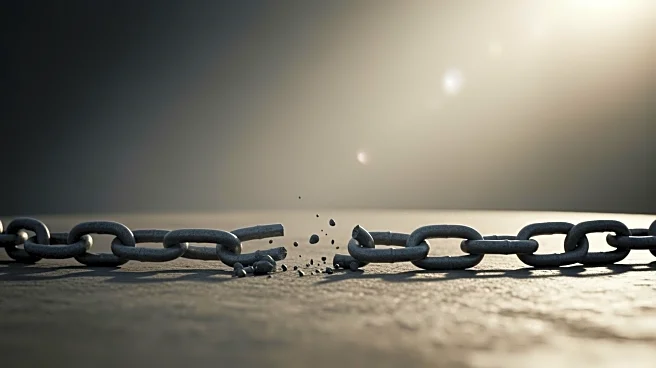What's Happening?
Ukraine's President Volodymyr Zelenskyy and European leaders have accused Russian President Vladimir Putin of delaying diplomatic efforts to end the invasion of Ukraine. They rejected any notion of Ukraine surrendering
land captured by Russian forces for peace, a suggestion occasionally made by President Trump. European leaders and EU officials have expressed their intent to use frozen Russian assets to support Ukraine, despite legal concerns. The statement from these leaders emphasizes the need for increased pressure on Russia's economy and defense industry to compel Putin to negotiate peace.
Why It's Important?
The accusations against Putin highlight the complexities of international diplomacy in resolving the Ukraine conflict. The stance taken by European leaders and Ukraine reflects a unified front against territorial concessions, which could have significant implications for international law and geopolitical stability. The use of frozen assets to aid Ukraine could set a precedent for handling conflicts involving aggressive territorial expansion. The situation also affects global economic sanctions and diplomatic relations, influencing the broader geopolitical landscape.
What's Next?
The EU summit in Brussels is expected to discuss further economic sanctions on Russia, aiming to increase pressure on Putin. Additionally, a meeting of the Coalition of the Willing, comprising 35 countries supporting Ukraine, is scheduled in London. These diplomatic efforts indicate a continued push for a resolution to the conflict, with potential shifts in international alliances and strategies. The evolving dynamics may lead to new negotiations or changes in military and economic support for Ukraine.









